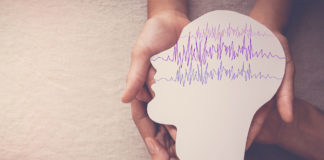The angry Christian: How can we free ourselves from destructive anger?
A man is about as big as the things that make him angry – Winston Churchill
The problem of happiness
Would you rather “achieve great things or be happy?” That question was asked in a YouGov survey (United States): 81 per cent said they would rather be happy; 13 per cent wanted to achieve great things; 6 per cent were uncertain.
Build boundaries, protect your marriage
The most important human relationship you'll ever have is with your spouse. Protect it at all costs.
Appeal to ignorance: Why it is useless to hide behind your finger
The appeal to ignorance (argumentum ad ignorantiam) is an error in thinking which argues that a conclusion is true because there is no evidence against it, or that a conclusion is false because there is no evidence in its favour.
Two steps back, but three steps forward
On the morning of the 15 November 2016, I awoke in a hospital bed, with no memory of how I got there. My favourite pyjamas had been torn from my body, and I lay in a hospital gown, a piercing pain in my head, impaling my brain. I was barely able to think and incapable of speech. I was scared, though this was...
The casino inside your phone
In the February 2023 issue of Signs of the Times, I wrote an article titled Gambling’s Dark Underbelly. Here in Australia, gambling is a multi-billion-dollar industry with a few very rich winners and millions of losers. In the article I concluded that “Gambling in any form is designed to bleed you for as long as you’re willing to bleed, with no regard for...
How to strengthen your willpower to make the best decisions
To have willpower does not mean saying you want to do something, it means to actually be doing it—André Maurois
Remember to rest
Sunday afternoons were a sacrosanct time when I was growing up in Argentina. Everything seemed to quiet and slow down between 2:00 and 5:00 pm, during siesta. Even shops would shut. All you could hear was the sound of the cicadas as the whole neighbourhood took a nap. Young and old, rich and poor were unified by this wonderful tradition. At least, I...
What exactly lies within us?
“What is mankind that you make so much of them, that you give them so much attention, that you examine them every morning and test them every moment?” (Job 7:17-18)
A generation that breathes anxiety
“You are always afraid people will judge you or know your weakness. It’s like being totally naked in front of a huge crowd,” says Bruno Feldeisen about the hidden struggle he had with anxiety.
Looking back on small acts of great kindness
This article contains stories of kindness, courage and generosity. By their simplicity they prove that all it takes to do good is a heart that is open to the needs of others.
Facebook, the Metaverse and a falsely promised future
Facebook is dead! Long live Metaverse! So proclaimed Facebook CEO Mark Zuckerberg to thousands of followers who tuned in to a livestream last Friday announcing the company’s rebrand.
From rancour to forgiveness: How do Christians manage conflict?
A lack of conflict is not necessarily a sign of spiritual maturity, as some Christians might be tempted to believe. The way in which we manage conflict says a lot about how we understand the role of grace, forgiveness and reconciliation in a sinful world.
Prayers of thanksgiving and praise
When we think of gratitude and a lack of gratitude, the biblical scene that comes to mind is the healing of the ten lepers, of whom only one, a Samaritan, returned to thank the Saviour, worshiping and praising God in a loud voice (Luke 17:15-16).
The Kiss of Judah | What remains after trust has been betrayed?
The first time Judas's kiss was heard was in the Garden of Gethsemane. However, its echo is repeated whenever the trust of an unsuspecting soul is betrayed. Betrayal, especially when it wears the mask of faith, tears apart the moral fabric of those who are wounded by it.


























